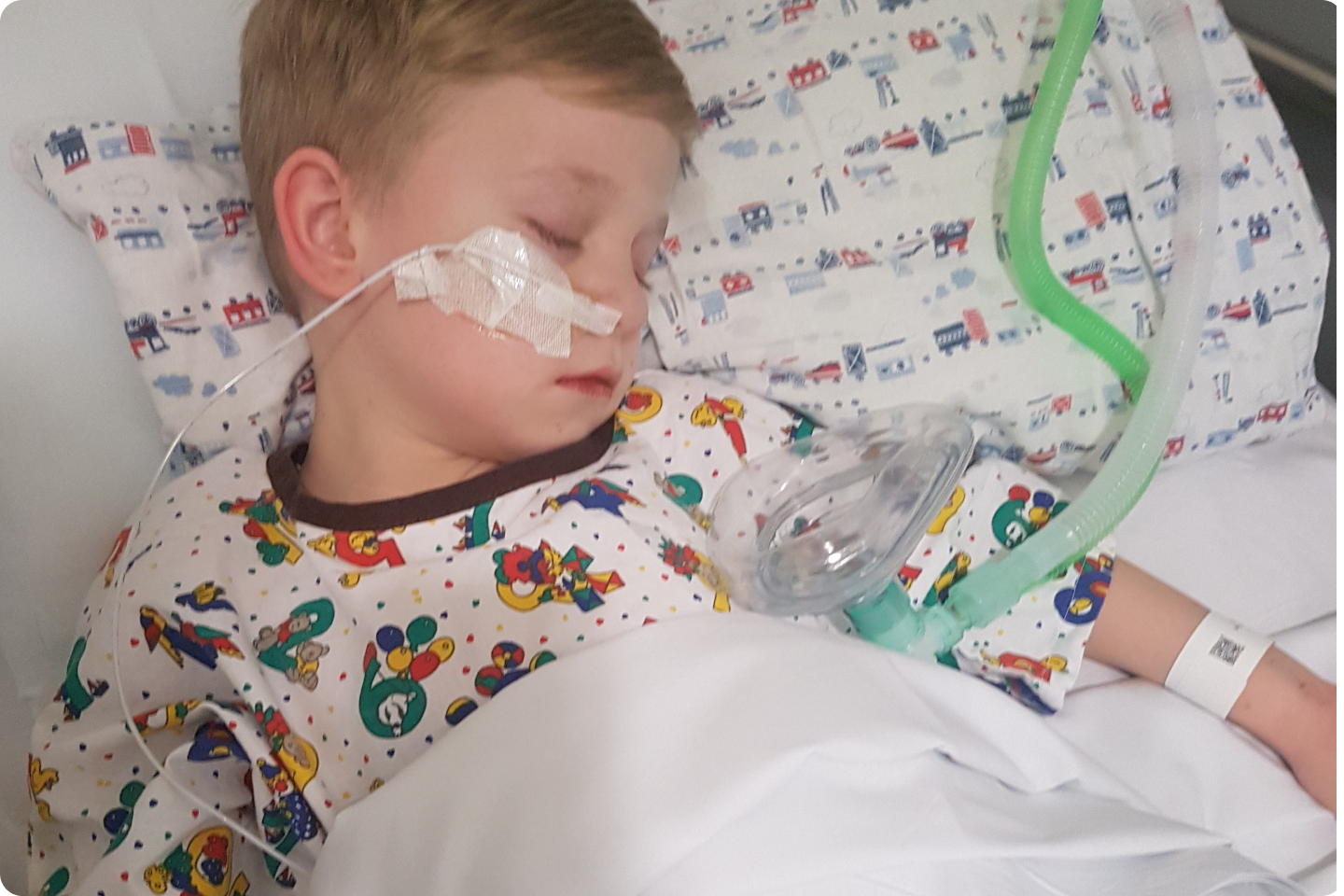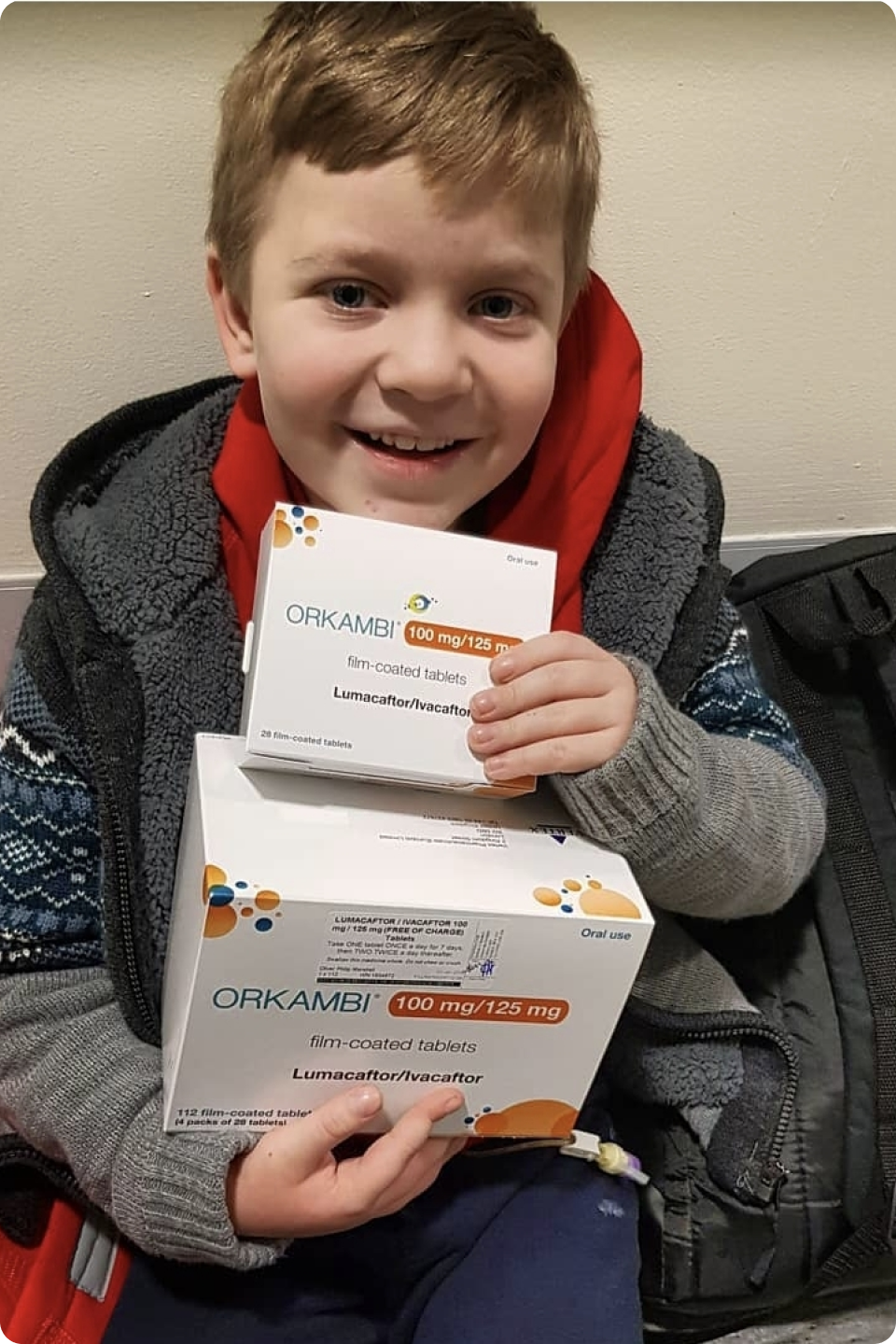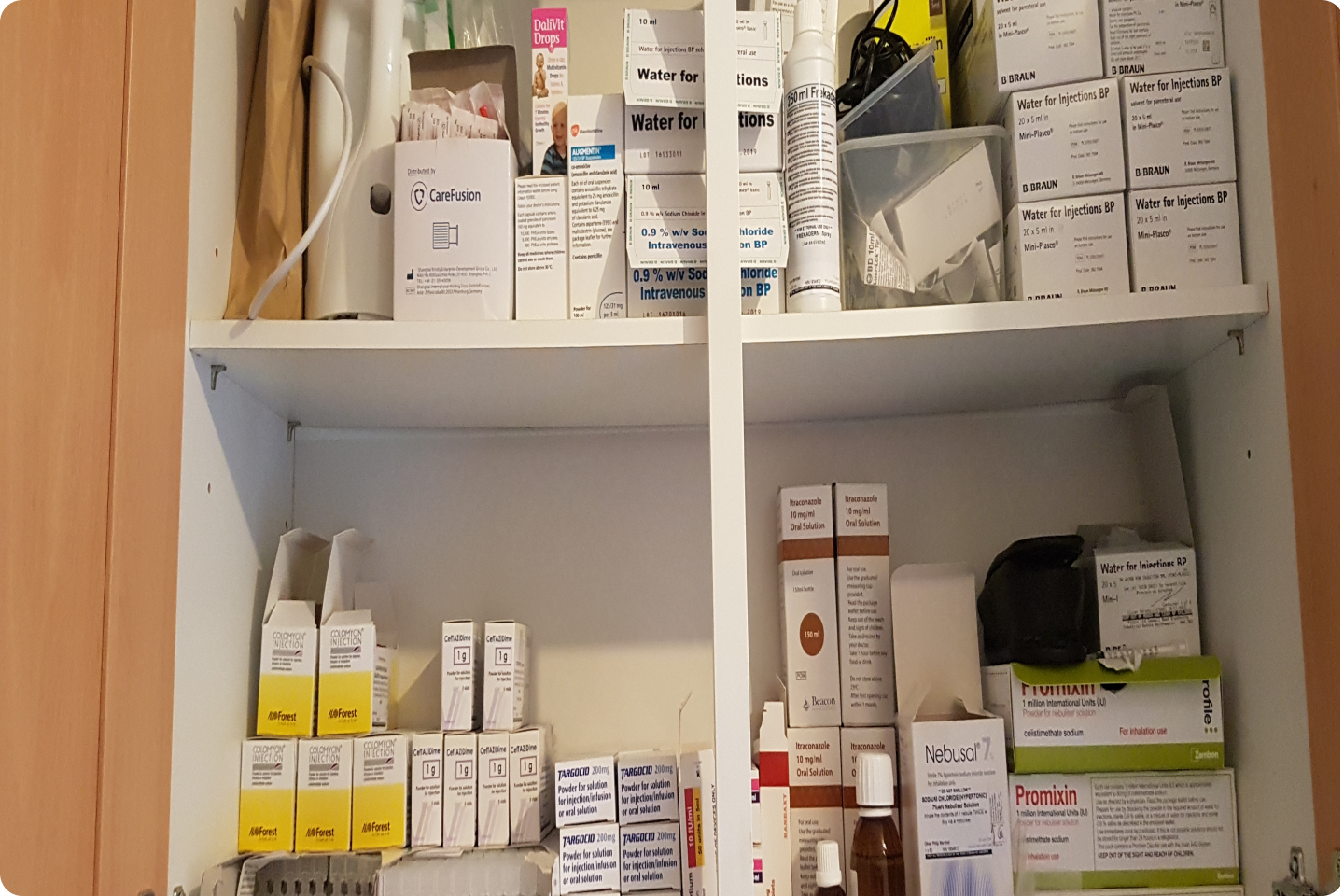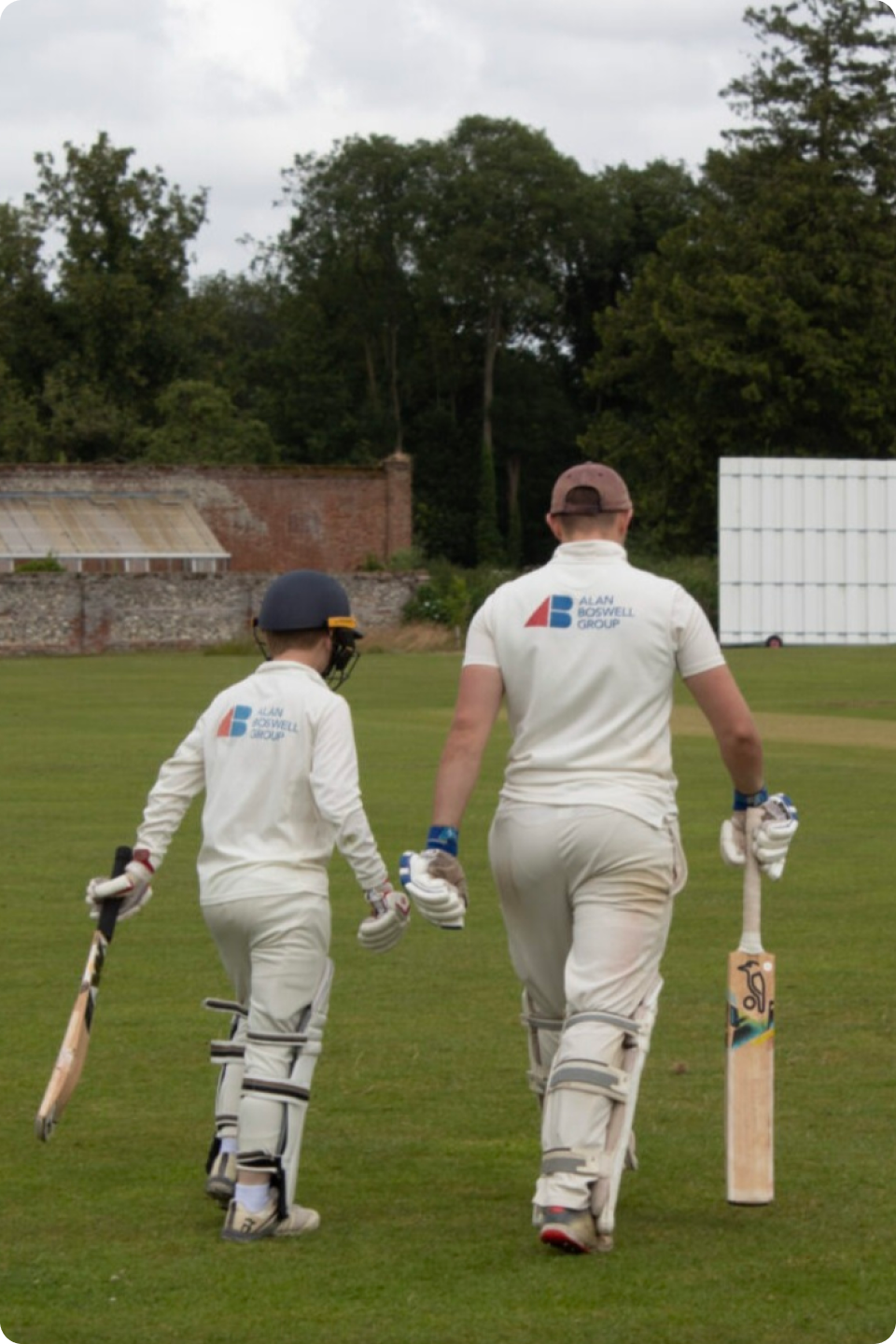All Articles
5 min read
A Mother’s Journey with Cystic Fibrosis

Written by
Emma
Published on
September 11, 2024
Our team all understands the financial burdens that come with being disabled – but in different ways.
In 2010, Emma’s first child was born and diagnosed with Cystic Fibrosis four weeks later. Being a new mum can be challenging enough, but adding on a lifetime condition can really pile on the pressure.
Here she shares her story…
Oliver was born in October 2010 and after a long and difficult pregnancy, I was relieved that he had arrived happy and healthy – or so I thought. The first four weeks were a newborn blur but when I look back, the signs were already there.
I’d had a problematic labour with an emergency C-section, blood transfusions and extra operations so I was trying to recover whilst looking after a baby. Plus as a first time mum, I wasn’t certain about how many times they were to be fed or how many dirty nappies I was supposed to be changing.
However, I now know things weren’t right. Oliver was constantly feeding and screaming between feeds, and as soon as I had fed him, the poo came and he’d need to be changed. We nicknamed him ‘Sir Poos-a-lot” and I was having to feed him every 2 hours. Then the call came…

Finding Out About Cystic Fibrosis
The hospital called one morning at 9am, exactly four weeks after he was born. I’d asked when they had done the heel prick test what would happen regarding the results and was told that if I hadn’t heard from them after four weeks then everything was OK. Crazily, just the day before we’d driven past the hospital where he was born and I actually thought, its been 4 weeks today and I’ve not heard anything so everything must be OK.
The next morning, I got the call.
We had to return to the hospital that afternoon and we were told that Oliver had Cystic Fibrosis. The next day, we had to return to start learning about it and how to handle his care. That was it. A new future had been mapped out and we weren’t expecting it.
Luckily, Oliver took to taking enzyme granules on top of apple puree and salt like a pro, and I got used to my arm aching in order to do his percussion physio for 15 mins twice a day. I went into routine mode to make sure everything was covered and I could cope.
In the midst of the emotions and the heartbreak, and grieving for a future I wasn’t sure he would have (the average life expectancy at that time was 32 years old), I was introduced to filling in forms and getting benefits. Oliver was born in Australia but the process was still lengthy and filled with multiple forms.
Then He Got Really Sick…

At around 8 months old, Oliver started coughing and working harder to breathe. I started bouncing around doctors and hospitals and being told I was overreacting and being a difficult mother. Until one day, a locum-doctor at the surgery took one look at him and said he had to go straight to hospital.
His oxygen saturation levels had fallen to 84% and he was admitted with bronchiolitis. After a few days of treatment we were allowed home, but unfortunately because of a delayed diagnosis and treatment, damage to Oliver’s new little lungs had already been done.
What resulted was years of watching my son’s health decline and multiple infections which damaged his lungs further.
When he was 18 months old, we moved to Sydney to be closer to family and a bigger hospital. I found out a few years later when we were leaving to move back to the UK, the doctors actually took a vote after his first appointment as to whether they thought they could save him or if the damage was too bad.
Luckily, over the next couple of years, they battled. Every weird and wacky infection, Oliver managed to pick it up. There was even one that his Professor had to google as only about nine cases of it had occurred up to that point.
His health kept declining and photos of the clubbing on his fingers and toes are actually being used as teaching tools somewhere as it was so severe on someone so young (it happens when the lungs are damaged). Eventually we decided to move back to the UK and start his treatment here.
He had a port fitted in his chest when he was five so I could do his IV antibiotics at home. It meant he could still go to school. He was so tired that he would sleep between lessons and he struggled to gain weight as eating was a challenge. His lungs were so full of mucus that he would bring up every morning and night, that it would also be swallowed into his stomach so he always felt full and sick.
Then when he was about seven years old he had a feeding tube fitted. But still he declined until he was sent to Great Ormond Street for lung transplant assessment. By this point he was on IV antibiotics more than he wasn’t and he was on maximum doses of everything, yet his lung function was only at 32-35%.

Then a Miracle Happened
At the end of 2019, Oliver was approved for new medications paid for on compassionate grounds by the pharmaceutical company which saved his life. Within a week his lung function had increased from 32% to 56% and he hasn’t looked back.
It was crazy! Within 12 months, he had stopped using his feeding tube and that was eventually removed completely nearly three years ago, and he went from needing IV antibiotics for three weeks every month to every six months, to every year to having not had any now for over two years.
Oliver has just started Year 9, played cricket at a county level and even plays in the adult teams during the season. He is still short and waiting for his growth spurt and his lung function still only sits around 65% as so much damage has been done. He still has to take a pile of tablets and medications and he is being monitored closely for CF-related diabetes as he has shown signs, but at least he is still out there enjoying life.

What Have I Learnt?
Dealing with an “invisible disability” has its challenges too. Whilst it’s not always obvious he has CF looking at him, the judgement I’ve had over the years when he’s coughed or been sick has been hard. I’ve even had disapproving people comment to me about giving Oliver chocolate when he was little as I was desperately trying to get any calories into him (now everyone is jealous and a little impressed with how much he gets to eat!)
Also, it’s getting the balance right between wanting people to treat him as more than his condition but also wanting them to understand that he won’t be able to run as fast, or will get tired, or needs to leave lessons to go to the bathroom more.
And that it does cost so much more money than you see. I’m a single parent and I’ve freelanced and been able to work from home for most of my career so I can juggle caring for Oliver and his sister and earning money, but sometimes it has been impossible. When Oliver has coughed all night and been ill, to then have to manage the day is exhausting.
Plus he needs extra calories so my food bill is constantly climbing. And then he needs to exercise to keep his lungs healthy so sport classes, and personal trainers, and gyms all need to be paid for.
Throw on top travel to and from hospital, parking charges, having to miss days of work for appointments or to care for him, or reducing my hours whilst I stay in hospital. It all mounts up.
On top of that, for two years after we returned to the UK, I could not claim any benefits for Oliver as I’d not been in the country for 9 years. Filling in those forms is hard and time-consuming, one little human error can set you back weeks!
That’s why I’m passionate about Purpl. The discounts matter, especially on top of everything else. Health is the most valuable thing we have so we battle hard to manage it but that takes time and money. Anything that helps, eases the stress, and gives something back to the community is essential – not just a nice to have.
Related Articles
Reiki, Meditation, Disability and Me
Welcome To Holland – A Powerful Perspective on Parenting a Child with Disabilities
World Diabetes Day – A Lifetime of Both Blessings and Curses
